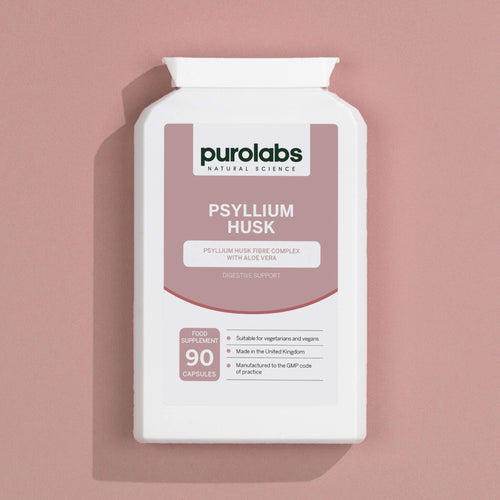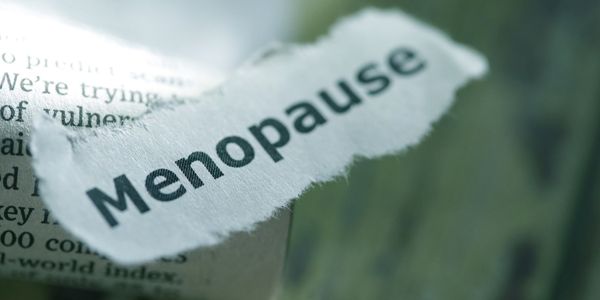What we eat plays a fundamental role in helping to support women through every stage of their menopausal journey.
The right nutrition can play invaluable roles in the body. Good nutrition can:
- Provide vital nutrients that the body requires to help it manage hormonal fluctuations
- Support bone health during and post-menopause
- Feed muscles and other supporting structures that make up the ‘scaffolding’ of our body like collagen, ligaments, and connective tissues1
- Support the nervous system to boost wellbeing and sleep
- Deliver nutrients to help with cardiovascular function, which is impacted during this life stage.
HRT is not a choice for many women, making nutrition even more fundamental to women going through menopause without conventional support.
Do not underestimate nutrition. It is pretty powerful, quite amazing (if I do say so myself) and along with supportive lifestyle changes can be a game changer and a lifeline for many.
Throughout this article I’m going to provide a few key foods that can go a long way to helping support those going through menopause, whilst also providing a few key pointers around diet logistics such as meal timings.
When it comes to nutrition, what you eat is key, but how your body metabolises and absorbs it is what makes all the difference.
Read on for my tried and trusted menopause diet recommendations…
Oestrogenic Foods
As we enter perimenopause, our oestrogen levels begin to decline and continue to do so through to post-menopause.
Eating a diet rich in phytoestrogens is a fantastic way to up your oestrogen levels to help manage many of the symptoms that menopause brings, such as night sweats and mood fluctuations.
Increase your intake of2:
- Tofu
- Tempeh
- Flaxseed
- Lentils
- Beans
Increase Fibre
Fibre is absolutely key when it comes to supporting menopause and helping the gut to function optimally at every life stage3.
Hormones are excreted through our stool, and I see constipation oh-so commonly linked to hormonal imbalances with clients.
If we aren’t excreting our hormones efficiently, they go back into circulation and lead to hormonal dominance.
‘Normal’ bowel movements occur at least once daily, they are easy to pass, and you feel completely ‘emptied’. The stool should also resemble a fully formed soft sausage-like structure4.
Whilst your poop isn’t the sexiest subject, managing your constipation will go a long way to helping alleviate many symptoms that you may currently be experiencing like:
- Water retention
- Insomnia
- Weight gain
- Night sweats
- Mood dysregulation
Ensure that your daily meals include a source of fibre to help get things moving. High fibre foods which are known to help relieve constipation include:
- Oats
- Sweet potato
- Kiwis5
- Plums6
-
Psyllium husk7

Psyllium Husk
Rated 4.4 out of 5 stars136 ReviewsGet things moving with our psyllium fibre supplement - naturally-sourced from Plantago ovata seeds to support digestive health.Learn MoreIt is also important to add that oestrogen is metabolised by our gut microbiome, making our gut health ever more important during this life stage8.
Hormone Boosting Foods
The ability to nourish our body with nutrients that are the building blocks for hormones, helps endogenous hormone production. This process requires more support than ever during menopause.
Our adrenals take over as the organ responsible for steroid hormone production during this phase, and as they do not have the hormone pumping power that our ovaries have, therefore it needs a little assistance.
Helping our body by providing it with the building blocks to create hormones such as dietary cholesterol, gives our adrenals a helping hand. Don’t be scared of fats! Upping your intake of healthy fats is truly key to supporting hormone production:
- Grass fed butter
- Avocado
- Olive oil
- Ghee
- Eggs
- Grass fed beef/lamb
Bone-Building Foods
One of oestrogens many roles is to help build bone, and during menopause as oestrogen levels decline, our ability to build and maintain bone health and integrity declines9.
Including bone strengthening foods to your every day diet is vital in helping reduce the risk of common conditions associated with menopause such as osteoporosis.
Consider adding the below foods into your daily diet:
Vitamin D rich Foods10 – Oily fish, eggs, dairy, mushrooms
Vitamin K Rich Foods11– Green leafy vegetables, broccoli, brussels sprouts, kale
Magnesium Rich Foods – Dark chocolate, avocado, peanut butter, buckwheat
Calcium Rich Foods – Soybean, tofu, sardines, rhubarb, spinach, dairy
You may also consider supplementing with a good quality bone health supplement. Our Bone Health Bundle at Purolabs contains potent measured doses of the above nutrients, which I would strongly recommend you consider taking if you are going through menopause and are experiencing symptoms like achy stiff joints.
Heart Healthy Foods
Oestrogen is cardioprotective and helps to support healthy heart function12.
Cardiovascular disease risk increases from the onset of menopause, however a diet abundant in colourful potassium rich fruits and vegetables helps to support healthy heart contractions13.
Antioxidants are fantastic for combatting inflammation and helping to support our cardiovascular system. Interestingly, a study unearthed a promising association between polyphenol rich red clover isoflavones and improved health markers for osteoporosis and cardiovascular disease14.
Consider adding red clover to your next meal!
Timing is Important
Intermittent fasting is a popular and trending weight loss method in recent years.
The diet allows for restriction followed by ‘eating windows’ in which you have a restricted time period each day to consume your food. A popular eating window is 8 hours daily, or for the more ancestral of us, aim to eat one big meal daily.
Studies do show that intermittent fasting can help improve metabolic health, boost weight loss and improve insulin sensitivity, however this is why I stress that nutrition, for many, needs to be personalised.
Intermittent fasting can produce amazing results for some, and spike a stress response which causes the body to hold onto fat for others.
I do not recommend intermittent fasting for menopausal women because it places further stress on the adrenals which are already running on overdrive as they have a newly added role of taking over hormone production.
When we fast, cortisol and adrenaline spikes, in an attempt for us to remain alert to ‘look for food’. Spiking cortisol when your adrenals need help will further exacerbate stress for many menopausal women.
Three meals daily is recommended for optimal hormone health during this time.
Ensuring that you digest your meals properly is also key to ensuring that the nutrients you ingest are absorbed and utilised to help manage symptoms.
For optimal digestion ensure your last meal is at least three hours before bed. This provides your gastrointestinal tract with time to start digesting and moving foods through your gut. Lying down with a full stomach has been shown to lead to acid reflux and symptoms of indigestion15.
Allow Treats from Time to Time
Any ‘diet’, for any life stage should allow for the occasional treats. An occasional indulgence from time to time will help you to sustain a healthy diet over the long term. Make sure you opt for nourishing foods that you enjoy and don’t be too strict on yourself.
My final point, (as dull as this one may sound) is to ensure that you are drinking 1.5-2.5 litres daily to allow your body to make good use of the nutrients you ingest. This will help with fatigue, healthy excretion and support healthy blood flow.






















